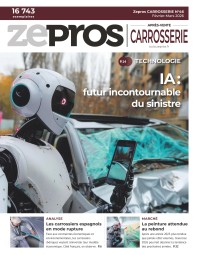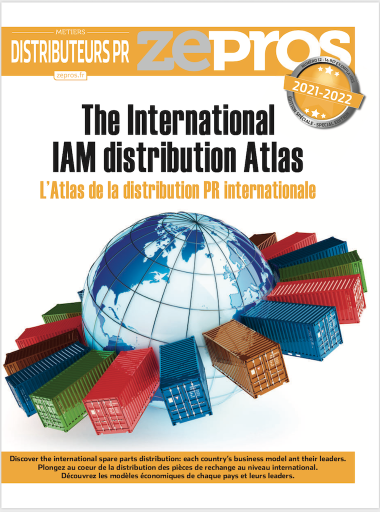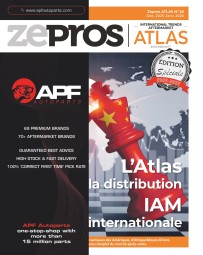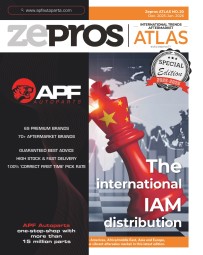
[Atlas] Temot International: Challenge 2022: all distributors treated fairly

Fotios Katsardis, CEO of the international group, puts on a polarizing year 2022, but not the year we will change anything fundamentally. He does not mince his words to describe an electric political future.
What are the latest results for Temot?
Fotios Katsardis: In 2021, TEMOT will close the year with 98 members and a consolidated turnover of €12.9 billion, vs. €11 billion in 2020. This includes €2.55 billion in commercial vehicle activity (€2 billion in 2020). These results are not only due to the eight new members but reflect the phenomenal performance of all our members in 2021 despite all the supply chain issues. In Europe, we strengthened our positions in Russia, Sweden, Croatia, Belgium, Austria and Montenegro. In China, we have a good base and we have managed to enter the Indian subcontinent.
Kenya and Nigeria completed our coverage in Africa and Guyana, Ecuador and Paraguay in South America. Our partners in the United States have extended to Central America (Belize and Honduras).
How will the market evolve in 2022?
F.K.: We are in a prolonged period of transition with a pandemic the end of which is not in sight. Product shortages will continue. The ability to deliver will be the primary KPI for many second-tier suppliers, and the long-awaited inflation will continue. The year 2022 will certainly be divisive, but not one of fundamental change.
What impact does supply disruption have on IAM?
F.K.: We are experiencing an unprecedented level of disruption in the supply chain. Global risk management has suffered since the start of the pandemic. The question is whether all the secondary market players will be treated fairly, and not just the multinational “big boys” capable of putting pressure on suppliers, to the detriment of SMEs which are the backbone of the market.
Has the acquisition race resumed?
F.K.: European parts distribution is very fragmented with 300,000 independent distributors. Fifty thousand of them represent two thirds of the value of the IAM market with an average of one to two million euros in sales per distributor.
This creates a space for market consolidation, due to the growing importance of critical mass and the value-creating merger-acquisition strategy of the major players looking for significant synergies. It should be noted that some countries – Netherlands, Belgium, Denmark, Sweden – are already consolidated, but this will not prevent transnationals from building competitive pressure.
Do you think that “full electric” is the only way to achieve the energy transition?
F.K.: This kind of fanaticism, with a concentration on a single technology, is the simplest solution but will not bring the required results. The deadline of 2035 is not far and yet technologically there is still a long way to go. The European Commission is powerful and bears the responsibility for implementation, but it can do nothing against the automotive giants and the politicians running their countries who fear the political costs.









